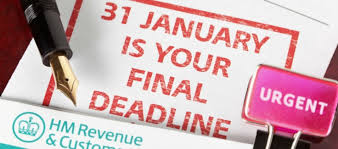With 31 January deadline fast approaching, there are just ten days left for the UK’s 5.4m taxpayers to submit their Self-Assessment tax returns*. With 2020 having been a year like no other and specifically taking into account the impact of the Covid-19 pandemic, what can you do if you miss the deadline?
Michael Wallace, Legal Advisor at DAS Law, tells you what you need to know…
In general, the penalties for failing to file your tax return on time are automatic and fixed: there is an initial penalty of £100 and after three months. If you are more than three months late the charges will be £10 per day – charged once the return is three months late for a maximum of 90 days. The higher of £300 or 5% of the tax due which is applied if the form is six months late; and a further £300 or 5% of the tax due (whichever is higher) which is applied if the form is 12 months late. There is a section on the government website that allows you to estimate the penalty based on the amount, time taken to pay and interest.
But what if you have good reason to file your return late? Suppose your business is recovering from a fire or you have suffered flooding?
1) HMRC says that a reasonable excuse for missing the deadline is “…normally something unexpected or outside your control that stopped you meeting a tax obligation.” Examples include the recent death of a partner, an unexpected stay in the hospital, computer failures, service issues with the tax authority’s online services, a fire that prevented the completion of a tax return or postal delays. HMRC will consider coronavirus as a reasonable excuse for missing some tax obligations such as payments or filing dates but it will be up to you to show how coronavirus has affected you in the appeal. There is still an expectation for you to make the return or the payment as soon as possible.
2) Excuses that HMRC will not accept include: you relied on someone else to send your return and they didn’t; you found HMRC’s online system too difficult to use; you didn’t get a reminder from HMRC. If you have a disability and claim to have a reasonable excuse that prevented you from meeting a deadline, HMRC will consider whether you made a reasonable effort to file on time. HMRC do not qualify this any further other than to say that what counts will be personal to the individual’s abilities and circumstances.
3) HMRC will amend or cancel a penalty for late filing in cases where the taxpayer can show that there was a reasonable excuse for failing to file on time. However, that excuse needs to have prevented the taxpayer from filing a return over the whole period – in other words, it must have applied continuously. For example, your case will be considerably weakened if you have actually worked and received taxable income during the period of the delay. HMRC might well argue that, if you were well enough to work, you were well enough to complete your tax return.
4) If you are still waiting for information to complete a return, it is entirely legitimate to make a reasonable estimate of the income or gain and then amend the return when the information becomes available. There is no penalty for amending a return, though there is a time limit for doing so.
5) Taxpayers have the right of appeal in respect of penalties charged and have the opportunity to argue the case in front of a tax tribunal. You will usually be given 30 days to appeal a decision but HMRC are giving an extra 3 months to appeal any decision dated February 2020 or later if the delay is because of coronavirus.
Don’t forget. It isn’t just the self-employed who need to complete a tax return; if you received £2,500 or more in rental income or if your savings or investment income was £10,000 or more before tax, you will also need to fill out a tax return. A full list is available from HMRC.
* https://www.gov.uk/government/news/self-assessment-deadline-less-than-a-month-to-go
Disclaimer: This information is for general guidance regarding rights and responsibilities and is not formal legal advice as no lawyer-client relationship has been created.

| [donate]
| Help keep news FREE for our readersSupporting your local community newspaper/online news outlet is crucial now more than ever. If you believe in independent journalism,then consider making a valuable contribution by making a one-time or monthly donation. We operate in rural areas where providing unbiased news can be challenging. |




















